I (lazily) used var in the original version of the below code and got a strange runtime exception in an entirely different part of the code. Changing "var" to "int" fixed the runtime exception but I cannot quite see why. I boiled the code down to this example;
public class Program
{
private static List<string> Test(string i) { return new List<string> {i}; }
private static dynamic GetD() { return 1; }
public static void Main()
{
int value1 = GetD(); // <-- int
var result1 = Test("Value " + value1);
// No problem, prints "Value 1", First() on List<string> works ok.
Console.WriteLine(result1.First());
var value2 = GetD(); // <-- var
var result2 = Test("Value " + value2);
// The below line gives RuntimeBinderException
// 'System.Collections.Generic.List<string>' does not contain a
// definition for 'First'
Console.WriteLine(result2.First());
}
}
I can see the type of the "var" being dynamic instead of int, but why does that type propagate to and affect the behaviour of the return value of the call to Test()?
EDIT: Maybe I should clarify my question; I can see that dynamic propagates to result2, what I cannot understand is why, when the IDE clearly indicates that List<string> Test(string) is the method called, it still infers the return value as dynamic. Is it a case of the IDE being more clever than the compiler?
